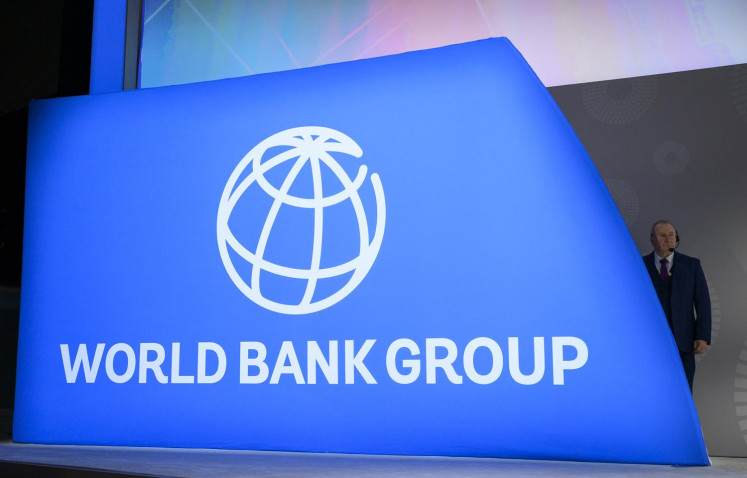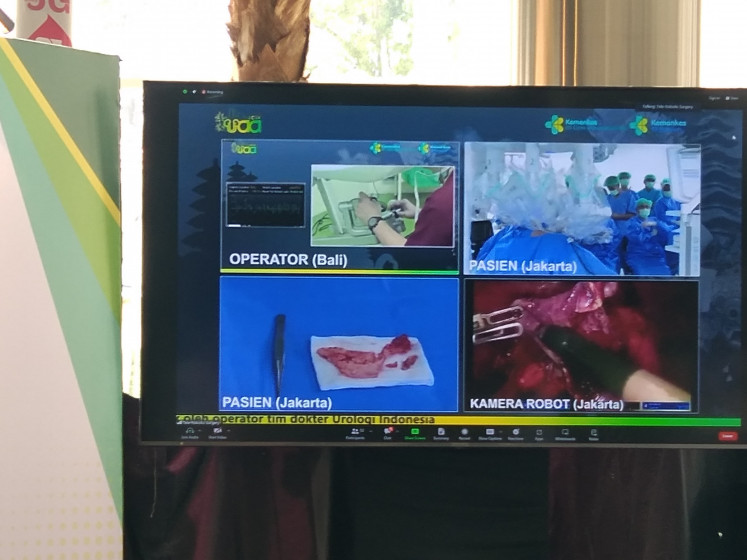Popular Reads
Top Results
Can't find what you're looking for?
View all search resultsPopular Reads
Top Results
Can't find what you're looking for?
View all search resultsCommentary: Fuel subsidy: Accounting versus opportunity costs
The government claims that it will make a whopping savings of Rp 57 trillion in 2012 by raising the domestic fuel prices on April 1
Change text size
Gift Premium Articles
to Anyone

T
he government claims that it will make a whopping savings of Rp 57 trillion in 2012 by raising the domestic fuel prices on April 1. To protect the poorest of the poor from the inevitable inflationary impact, the government is allocating Rp 40 trillion in direct cash subsidies. That gives the state a net savings of about Rp 17 trillion.
All this looks like good math and may even impress some people, except that the figures in trillions (that’s 12 zeros) are perhaps too mind-boggling for the average person to grasp. They do know this however: The plan to increase “Premium” prices at the gas stations from Rp 4,500 to Rp 6,000 per liter will affect them, and for some, it will affect them badly.
For an administration that is led by two economists (granted one holds a doctorate degree in agricultural economics, but the other is an actual economics professor), it is more surprising that they have failed to distinguish between accounting and opportunity costs. If they had bothered to make that distinction, they could actually make a compelling argument about why they are increasing fuel prices now.
It’s a distinction that is one of the first things drilled into all students of economics, whether at high school or in college. Accounting cost is the actual sum of money incurred when making a purchase, while opportunity cost is the alternatives you forego or sacrifice by spending that sum.
When the government says it is allocating Rp 137.4 trillion ($15.3 billion) in fuel subsidies for 2012, that’s the accounting cost. Finance Minister Agus Martowardojo may be forgiven for taking this line, not only because he is a banker by training but also because it is his job to keep spending in check with his ability to raise revenue.
But other government officials, especially those who profess to be economists, should also be talking about the real economic costs, or what the “dismal science” describes as the opportunity costs of fuel subsidy.
There are many competing demands on limited government resources, but the fuel subsidy somehow takes priority above everything else, as it alone accounts for almost 9 percent of the Rp 1,534.6 trillion the government plans to spend in 2012 (total energy subsidies, including electricity, amounts to Rp 230 trillion, or 15 percent of total spending).
Yet, a simple academic exercise of what the huge fuel subsidy bill could buy would be very revealing, from improving the education system, including building more first-class universities, providing better health care for people, eradicating poverty, bringing electricity to more homes, to building the country’s badly needed economic infrastructure, or even purchasing weapons so that our military can meet the minimum essential force requirement early.
These are spending items that may not keep fuel prices low, but they are certainly key in helping to strengthen people’s income and welfare. There is very little that the government can do about world oil prices, but there is a lot that the government can do to help improve the people’s income.
It is even more disheartening to think that the nation is essentially burning its oil money by keeping domestic fuel prices artificially low. One estimate says that as much as 40 percent of the fuel subsidy goes to the undeserving rich. That seems like a conservative figure, but whichever figure we use, we are throwing good money after bad.
The government is also disregarding another basic principle taught to economics students — that allowing supply and demand forces to set price is the most optimal way to ensure efficient allocation of scarce economic resources. The argument goes that if you tamper with price mechanisms — such as providing subsidies — then you are creating distortions that lead to greater inefficiency.
People also react to price changes, economics students are told. If price goes up, they use less. It’s a rule that has been fully tested with fuel pricing in most countries around the world, even in the poorest countries. There is no reason to think that this economic principle doesn’t apply to Indonesia. People respond to price changes.
The huge subsidy bill has done its damage in a big way. The price distortion has prevented the nation from getting rid of its strong addiction fossil fuels and stopped it from switching to other less expensive (and cleaner) sources of energy. This distortion becomes even more apparent today with the mass hoarding (and most likely smuggling) of fuel products in the run up to the April 1 increase in prices.
True, the government is not run solely on economic principles, and there are important political considerations to take into account, especially in setting the fuel prices. But right now, the only thing that the huge fuel subsidy buys is a peace of mind on the part of the political elite. But this gross economic inefficiency is unsustainable in the long run and even irresponsible. At best, it is a temporary peace.









